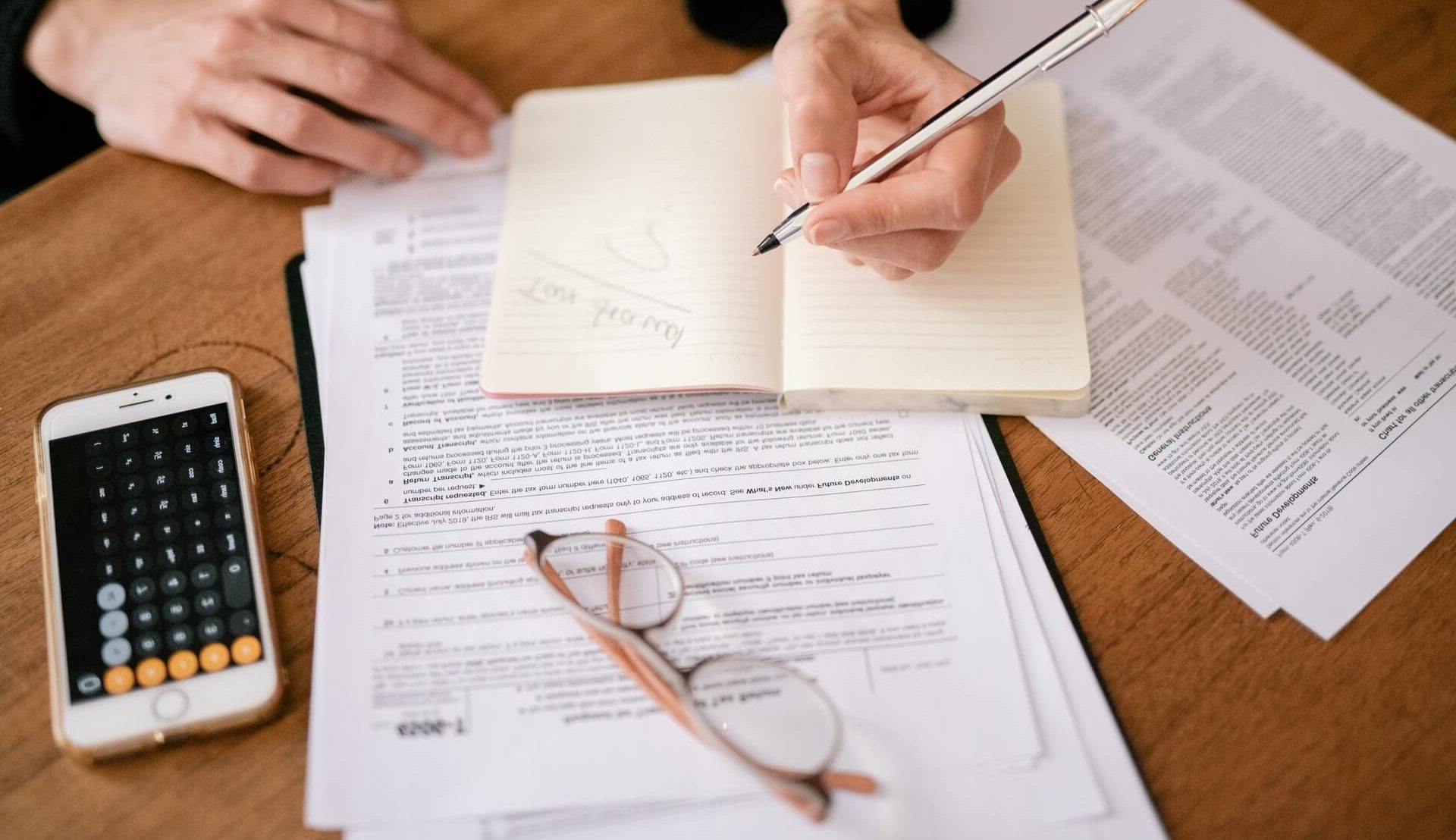
What is a HMRC Self Assessment tax return? How can I send it? What are the deadlines, and what are the penalties? You may be employed, and file a Self Assessment tax return. In this case, you may be able to do so online or by post. Additionally, you could change tax returns that you already made, and receive an updated bill. Your Benefits will tell you all you need to know about HMRC Self Assessment tax returns.
Do I need to complete a Self Assessment Tax Return?
You only need to complete a HMRC Self Assessment Tax Return if certain conditions applied to you in the past year. In fact, this is the case if the following is true, you:
- Were part of a business partnership;
- Were self-employed, and considered a ‘sole trader’. Furthermore, you need to have had more than £1,000 in income, prior to claiming tax relief.
Your income may come from things other than a pension or wage. Then, you could not have to send a Self Assessment Tax Return. However, you could have other income that is not taxed. In fact, it could be the following:
- Foreign income;
- Income from dividends, investments and savings;
- Commission and tips;
- Income received from renting a property that you own;
- Covid-19 support payments or grants.
You may have to pay capital gains tax. You would need your national insurance number, which you get through national insurance contributions. This is true to file online, through digital service, or file your tax return. It’s recommended not to do this with your credit card. It will impact your employment income, especially if you are registered for self assessment, or assessment payment do not pay enough tax.
Why could I need to fill a Self Assessment?
There are different reasons for which you may want to fill a Self Assessment Tax Return. First, to prove your self-employment, to claim certain benefits. This could include Maternity Allowance, or Tax-Free Childcare. Second, to receive Income Tax relief.
What is a Self Assessment Tax Return?

The Self Assessment Tax Return is a way of assessing and collecting your Income Tax. It is maintained by HM Revenue and Customs (HMRC). Typically, Income Tax is taken off from your wages, savings or pensions directly.
You may have different income. In fact, this could include support payments. Otherwise, it could include Covid-19 grants. Then, you need to report them in your HMRC Self Assessment Tax Return.
You may have to complete a Self Assessment Tax Return. Then, you need to complete it and send it in after the end of the tax year. This is on 5 April. Note that if you do not complete your Self Assessment Tax Return on time, you could have to pay penalties. Indeed, this is also the case if you file and pay too late.
You need to pay your HMRC Self Assessment Tax Return by a certain date. More specifically, by 31 January. What you will need to pay will be calculated by HMRC. They will base themselves on what you put in your Self Assessment.
You can either complete your tax return by post or online. You can complete your Self Assessment Tax Return online if one of a couple of situations apply to you. More specifically, if you are self-employed. If this does not apply to you, if you send tax returns. This could be because you rent out a property.
How can I send a HMRC Self Assessment Tax Return?
You may not have sent a Self Assessment Tax Return last year. If that is the case, you may register in several different ways. In fact, it depends if you have a partner, are self-employment or a sole trader.
There are different ways you can send your Self Assessment Tax Return. In fact, the easiest and most straightforward method is online, on the Gov.UK website, using your Government Gateway username and password.
There are also other methods that you can use to complete and send your HMRC Self Assessment tax return. In fact, in paper form or through commercial software. In fact, for certain situations, you need to send your tax return this way. More specifically, for the following, if you:
- Are a religious minister;
- Are a Lloyd’s underwriter;
- Receive income that come from a trust;
- Have an estate or trust;
- Had more than just one asset and have to report profits that you received from disposing of or selling it (‘chargeable gains’);
- Have a partnership;
- Were considered a non-resident and lived abroad.
How can I pay for my Self Assessment tax bill?
There are different ways through which you can pay for your Self Assessment. In fact, you have a number of options. You can use Direct Debit, cheques, CHAPS and more. You can even set up automatic payments to occur weekly or monthly.
What are the Self Assessment tax return deadlines?
There are several deadlines for your HMRC Self Assessment tax return. Additionally, you need to send your tax return and any money you need to pay by those deadlines. For information, the tax year starts on 6 April and ends on 5 April the following year.
| Self Assessment tax return deadlines for the 2021-2022 tax year | |
|---|---|
| Situation | Deadline |
| Registering for Self Assessment for those who are a sole trader or self-employed, not self employed, or those registering a partnership or partner | No later than 5 October 2022 |
| Filing a paper tax return | No later than midnight on 31 October 2022 |
| Filing an online tax return, or/and paying the taxes that you need to pay | No later than midnight on 31 January 2023 |
The date for the accounting for your partnership’s accounting may be between 1 February and 5 April. Additionally, your partner may be considered a limited company.
Then, the deadlines for paper returns is no more than 9 months following the date that the accounting is due. For online returns, the deadline is no later than 12 months following the date that the accounting is due.
Self Assessment tax return: what if I am past the deadline?
You may be late to pay your taxes. If this is the case, you could have to pay a penalty. However, you may have an excuse. Then, you could file an appeal.
How can I change my Self Assessment tax return?

You may have filed your HMRC Self Assessment tax return, but need to change it. Then, you can change it no later than 3 days (or 72 hours) following you filing it. This could be because you made an error when filling it out.
For the 2021 to 2022 tax year, the deadline is 31 January 2024. For the 2020 to 2021 tax year, the deadline is 31 January 2023. Following these deadlines, you may still change your Self Assessment tax return. However, you need to write to HMRC to do so.
You may have paid too much or too little, and then change your HMRC Self Assessment tax return to what you really owe. Then, you will either need to pay what you need to, or be able to request a refund.
How can I update my Self Assessment tax return?
There are different steps to updating your Self Assessment tax return online. First, log in to your Government Gateway account. Second, go to the section that says ‘Your tax account’, then ‘Self Assessment account’. If this does not apply to you, go to step three.
Third, click on ‘More Self Assessment details’. Fourth, look on the left and select ‘At a glance’. Fifth, click on ‘Tax return options’. Sixth, find the tax year that corresponds to the Self Assessment tax return you want to change. Finally, select the tax return. Make the changes that you want. Then, file it.
If your HMRC Self Assessment tax return was made in paper form, you need to download a new one. You can find it on the Gov.UK website. Make changes to the appropriate pages. Then, send it to HMRC. Then, write the following information on each pages you filled:
- The word ‘amendment‘;
- Full name;
- Unique Taxpayer Reference (UTR).
The address to which you need to send corrections is indicated on the Self Assessment form. However, you may not be aware of this address. If this is the case, you can send your form to the following address:
Self Assessment
HM Revenue and Customs
BX9 1AS
United Kingdom
You may have completed your HMRC Self Assessment tax return through commercial software. Then, you need to ask your software provider. Ask them to make changes. If they are unable to, then ask HMRC.
What do I need to include if I write to the HMRC?
You may need to change your HMRC Self Assessment tax return from the 2019 to 2020 tax year or prior. Then, you need to contact the HMRC by post. In writing, you need to include the following:
- The reason for which you believe you paid too little or too much;
- The amount that you believe you have to pay, or overpaid;
- The tax year to which the changes would apply.
You may be making a claim a refund in your tax return. Then, you will need to write some information with your claim. More specifically, you will need to include the following:
- Write that you are claiming ‘overpayment relief’;
- The way in which you want to be paid back;
- Proof indicating that you paid your tax using Self Assessment for the relevant tax year;
- Assure that you did not try to request this refund prior to this claim;
- A written and signed declaration indicating that you gave the most correct and detailed information you could, to the best of your ability.
How can I change my tax bill?
To change your tax bill, change your HMRC Self Assessment tax return with the steps above. Then, no later than 3 days later, your bill will be updated. More specifically, it will indicate interests you may have to pay, and the difference between your old and new tax bill.
Then, you may have overpaid taxes. Then, go to your HMRC online account. On the left, click on ‘Request a repayment’. Then, you should be able to receive your refund within 4 weeks.
You may need to pay more taxes. Then, your new bill will show your new deadline. If you made the changes by post, you will receive a new bill from HMRC. This should be no later than 4 weeks after you sent your letter. If you included your bank information, they will also send you a refund.
Self Assessment tax return: what are the penalties?
You could have to pay a penalty. In fact, this is the case if you did not send your HMRC Self Assessment tax return on time, or did not send payments on time.
Note that you may appeal a penalty, if you have a reasonable excuse. Additionally, someone in a partnership may be late on their tax return. Then, everyone in the partnership may have to pay a penalty.


